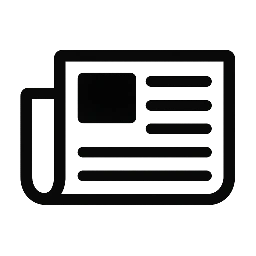In 2025, the global healthcare system is facing a critical challenge: a severe shortage of blood supplies. Medical advancements have increased the demand for blood transfusions, while natural disasters, pandemics, and accidents continue to rise. Yet, blood donation rates remain low in many parts of the world, including Pakistan. This growing gap between demand and availability makes blood donation more vital than ever before.
At the Aleem Dar Foundation, we recognize blood donation as one of the most urgent, life-saving services that anyone can contribute to. Every drop can help save lives—from accident victims and surgical patients to mothers in childbirth and children with blood disorders. This article explores why blood donation matters more in 2025, the role of safety and efficiency, and how our foundation is playing a central part in building a healthier, more responsive nation.
The Growing Demand for Blood in 2025
In recent years, the healthcare landscape has changed significantly. Here’s why the need for blood donations has sharply increased:
- Rising Road Accidents: With more vehicles on the roads, traffic accidents are more frequent, often requiring urgent transfusions.
- Chronic Illnesses: Diseases like cancer, kidney failure, and thalassemia require regular blood or platelet transfusions.
- Complicated Surgeries: Advanced surgical procedures, including organ transplants, require large volumes of blood.
- Natural Disasters & Emergencies: Earthquakes, floods, and fires create sudden spikes in blood demand.
- Pandemics: Even in the wake of COVID-19 and other viral outbreaks, immune-compromised patients need donor blood that’s healthy and safe.
Why Blood Donation Is a Life-Saving Act
A single blood donation can save up to three lives. Here’s how your contribution is used:
- Red Blood Cells: Used for trauma patients and surgeries.
- Platelets: Vital for cancer patients undergoing chemotherapy.
- Plasma: Helps those suffering from burns, liver diseases, or clotting disorders.
By donating blood, you’re not just offering a drop—you’re offering hope, healing, and a second chance.
How Aleem Dar Foundation Supports Urgent Blood Services
The Aleem Dar Foundation is committed to strengthening Pakistan’s healthcare system by:
- Running regular blood donation drives in hospitals, colleges, and communities.
- Establishing mobile blood collection units in underserved areas.
- Maintaining a 24/7 emergency blood bank service accessible via phone and soon through a mobile app.
- Partnering with government hospitals and private clinics to meet emergency requirements.
Our services are designed to respond urgently, particularly in times of crisis when speed can save lives.
Ensuring Safety in Blood Donation
One of the key concerns for both donors and recipients is safety. That’s why Aleem Dar Foundation strictly follows international health protocols, ensuring:
- Sterile and disposable equipment is used for every donor.
- Thorough screening of donors to prevent transmission of infectious diseases.
- Proper storage and transport of blood using temperature-controlled systems.
- Trained staff and paramedics to handle every stage of the donation and transfusion process.
For recipients, this means reliable, safe, and life-saving blood. For donors, it guarantees a safe and supportive environment during and after the process.
Blood Donation Sizes: Who Can Donate and How Much?
Understanding the donation volume helps people prepare and decide if they’re ready to give blood. At Aleem Dar Foundation, we follow these standards:
- Whole Blood Donation: Around 450–500 ml per session.
- Platelet Donation (Apheresis): Can take longer but collects only platelets and returns the rest to the donor.
- Plasma Donation: Around 600–800 ml, depending on body weight and health.
Healthy individuals aged 18 to 60, weighing more than 50 kg, with no recent illnesses, are typically eligible. We advise every donor to consult with our trained medical team before donating.
Common Myths About Blood Donation—Busted
Myth 1: Blood donation makes you weak.
Fact: Your body replaces the donated blood within 24–48 hours for plasma and a few weeks for red blood cells.
Myth 2: It’s painful and risky.
Fact: Donors usually feel a small pinch, and the process is safe and monitored by professionals.
Myth 3: People with certain conditions can never donate.
Fact: Some conditions like anemia may disqualify you temporarily. But many chronic conditions allow safe donations with approval.
Aleem Dar Foundation works to educate, counsel, and guide potential donors on how they can safely contribute.
How We Make the Process Easy and Fast
To encourage donations, we have simplified the entire process. Here’s what you can expect when you visit an Aleem Dar Foundation donation center:
- Quick Registration: Fill out a short form and provide ID.
- Health Screening: A professional checks blood pressure, pulse, hemoglobin, and medical history.
- Donation Time: The process takes 8 to 12 minutes.
- Post-Donation Care: Enjoy a drink, light snack, and rest for a few minutes before going home.
Additionally, we offer mobile blood donation camps at universities, mosques, and workplaces, making it easier for you to donate without traveling far.
Our Vision for 2025 and Beyond
At Aleem Dar Foundation, we’re not just responding to today’s needs—we’re preparing for the future by:
- Launching a real-time blood donor tracking app to connect patients with nearby donors.
- Expanding our national blood bank network across all major cities and rural centers.
- Offering free transportation for donors and emergency pickups for critical patients.
- Partnering with schools and youth clubs to educate and inspire the next generation of life-savers.
Conclusion: Be a Hero, Donate Blood
In 2025, blood donation isn’t just important—it’s essential. As population grows, medical treatments evolve, and emergencies rise, our national health system depends on voluntary, reliable donors like you.
By donating blood through Aleem Dar Foundation, you join a mission of hope, healing, and humanity. You help ensure that no life is lost due to a lack of blood. You help a child live, a mother survive childbirth, and an accident victim return home.

